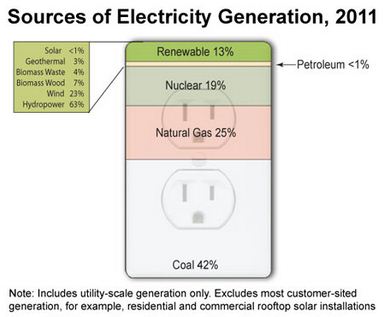The Military Strategy Of The Commander In Chief
SEARCH BLOG: OBAMA
President Obama and former CIA Director and currently Secretary of Defense, Leon Panetta, announced sweeping changes to the U.S. military.
Now that the Middle East has become an international peace zone, the President wants to draw down U.S. land forces and shift high-tech resources to the Asian front where massive hostilities with China are considered a foregone conclusion. The focus will be on the use of this high-tech approach designed to intimidate the several million man Chinese armed forces.
Meanwhile, President Obama is also encouraging more U.S. corporations to invest in China saying, "The Chinese need technology transfer, legal or otherwise, to ensure that they will be able to continue supplying us all of the things that we currently make for ourselves. The U.S. cannot morally keep either its military or civilian technology secrets from those who want them." This policy, of course, will not apply to U.S. citizens who attempt to obtain such secrets... especially military secrets. They will be tried for espionage. [STRATEGY TWO: IGNORANCE IS THE ROOT OF ALL PROBLEMS SO WE JUST NEED TO BE MORE FORTHCOMING WITH OUR SECRETS TO OUR COMPETITORS AND ADVERSARIES]
Some nations and three people in the U.S. have expressed concern about President Obama's notion that the hostilities in the Middle East are over. They note that the precipitous withdrawal of all U.S. troops from Iraq followed by negotiations to turn over Afghanistan to the Taliban (as long as they really promised to be really good) might have been grounded less in reason and more in simply being tired of the whole thing. Meanwhile, President Obama urged Israel to consider Iran, Syria, Lebanon, and the Palestinians to be simply good neighbors who want "to take down the fence that separates them." He also noted that his Administration plans to stand behind Israel 100%... way behind... completely out of the picture behind. [STRATEGY THREE: IF WE APPEAR TO MAKE A REALLY GOOD EFFORT, IT IS APPROPRIATE TO NOT COMPLETE THE EFFORT]
The U.S. military should be able to ensure national security with smaller conventional ground forces, the U.S. president said. He vowed to get rid of "outdated Cold War-era systems" [nuclear weapons, missiles, bombers] while investing in the capabilities needed for the future, including intelligence, surveillance and reconnaissance, as well as counterterrorism, among others. [source]It appears we will watch adversaries into submission.
The President hopes that these measures will free up to $1 trillion over the next decade. Said the President, "We'll miss a few things, such as a standing army, but that is a small price to pay for Middle East peace and ensuring that my rounds of golf in Hawaii are not threatened by hoards of Chinese seamstresses overrunning the islands." [STRATEGY FOUR: MILITARY STUFF IS REALLY BOTHERSOME SO MAKING THE MILITARY MUCH SMALLER FREES UP MY TIME]
All right. There was some tongue-in-cheek in this post... but I'm not laughing... and neither should you. Read the links in this post and you'll understand more.
See also:
TUESDAY, JANUARY 03, 2012Snatching Defeat









